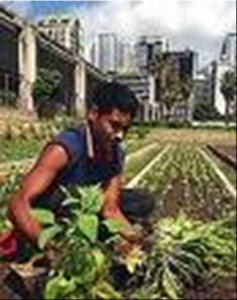It’s fairly obvious within the Transition Town network that our principle concerns are Climate Change and Peak Oil, but these are only 2 of several crucial issues affecting the humanity.
We are in the middle of a ‘perfect storm’ of interrelated problems that will if left unsolved have massive consequences for humanity and the entire biosphere.
The great engineering success stories of our past tend to focus on solving one problem at a time. That won’t work any more. Just as there isn’t just one problem, there isn’t just one solution, there are many.
So rethinking the food you buy, the way you cook, what you do with the waste, the clothes you wear and how you get to work – do matter and will make a difference, but tinkering on the edges of our industrial economic system is only a start, Transition is about changing it all.
Looking at some of these solutions in more depth can be inspiring. This isn’t a hair-shirt crusade, it’s supposed to be fun.
This is a quick look through all the problems just to get an idea quite how big they are and why we need some solutions.
Overpopulation is a big one and one of the main causes of all the others. There are simply so many of us that the pressure of all these people uses up the world’s resources (oil, coal, food, fish, freshwater, etc).
Debt too needs to be looked at together with all the others, especially at the moment when the economy grabs all the headlines. The western economic model needs at least 2% growth every year just to keep stable, as businesses and governments borrow to invest. In order to generate enough to pay the interest on the debt and continue to pay the bills we need to generate new money all the time. Therefore most of the damage is done because there is continual pressure to mine, fish, log or hunt the world’s resources just to pay the bills. But the world is not getting any bigger.
Toxic waste, overfishing, deforestation and hunting all have their own problems too, but biodiversity itself is scary. Once a species dies out it can never return. Low fish numbers if action is taken can grow back, but not once they are extinct. We are in the middle of one of the biggest species die-offs in geological history.
Now that’s done we can have some fun looking at solutions.
The main theme of all the solutions is to maintain the total level of natural capital – that is the world’s living resources (animals, plants, fish, soil, wood) and non-living resources (coal, gold, silver, etc)
One thing to do is stop the population growing. Having many more people tomorrow just makes it harder to cut down consumption. Levelling population is a good start, but it would be easier again if there were less people consuming things.
What would it mean if we just maintained the present population? It’s basically having less children, but this one small thing has a tidal wave of consequences. So it has to be looked at with all the other things.
We can make space for the rest of nature whilst still living within it. Many of the pressures on nature are because we either destroy habitat or make it less able to support plant and animal life. There are many ways to allow habitat to thrive, one is to make reserves that we leave undisturbed. When fish and other wild animals have somewhere safe to breed it stops the decline and then they will re-colonise elsewhere. We could actually get more fish if we managed reserves properly.
Many of the activities of Transition Towns focus on the ways we can consume less, by changing the way we heat houses, insulate houses, travel, generate energy and grow food. We can also re-use or recycle many things.
Let’s take a closer look and get surprised.
Next topics – Transport Re-organisation, Permaculture, Population, Economic Growth, Steady State Economics, Energy use, energy generation, habitat conservation, Manufacturing

![[forumforthefuture.org]](https://www.transitionworcester.org.uk/wp-content/uploads/2013/12/Wind_78434587_Stockbyte_Comstock-Images_Thinkstock_660-300x200.jpg)

